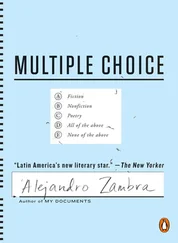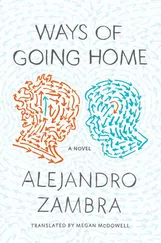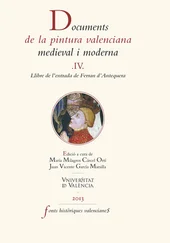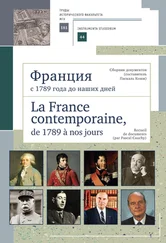Structural jam: in the pool halls, there’s always a table where there’s not enough space to get a good shot at the ball. That’s called a structural jam.
That’s what my life is like now.
Last night I wrote this beginning of a tango:
Sad and serene
expecting nothing
maybe one day
no sun and no rain
I can look with ease
upon the ashtray
my voice now gutted
of light and of love
I like the image of the ashtray, empty like never before, like now: incomprehensibly empty. What a terrible tango, anyway.
•
Cigarettes are the punctuation marks of life. Now I live without punctuation, without rhythm. My life is a stupid avant-garde poem.
I live without cigarettes to mark a question. Without cigarettes that end as we get happily or dangerously close to an answer. Or the absence of an answer. Exclamation cigarettes. Ellipsis cigarettes. I would like to smoke with the elegance of a semicolon.
To live without music, in an unbearable continuity.
I’m reading Richard Klein, and I think I should celebrate his words by smoking. He’s completely right. “Smoking induces forms of aesthetic satisfaction and thoughtful states of consciousness that belong to the most irresistible kinds of artistic and religious experience,” he says.
Among my first musical memories is that song by Roque Narvaja with this beautiful refrain: “I await the morning awake / smoking my time in bed / filling the room with your face / cinnamon and charcoal.” Back then, at six or seven years old, I was impressed by the image of a man smoking time. I’m sure that was the first time I associated smoking with the passage of time.
What a good song that was: “Along the streets of my life / I go, mixing truth and lies.” I like it when the guy says, “I’ve stopped drinking / and now I eat your favorite fruit.”
And it’s true that I mix, along the streets of my life, truth and lies. As for a favorite fruit, I don’t think I have one. It is absolutely not that disgusting thing that, at first glance, looks like a watermelon, and in Mexico, Colombia, and Ecuador, and I think also in Venezuela, is called a papaya, even though it is nothing like the Chilean papaya. (They say it’s the same fruit, but it’s hard to believe. And I don’t want to look online.) I haven’t stopped drinking — I should — but five months ago I stopped smoking, and that has made me into a much healthier and less happy person.
I open the newspaper supplement and mistake the words SOLIDARITY AT CHRISTMAS for SOLITARY CHRISTMAS. I don’t know why they’re talking about Christmas, anyway, when it’s so far away.
I think that we are heading toward a shitty world where all songs are sung by Diego Torres and all novels are written by Roberto Ampuero. A world where it’s better not even to think about dessert, because the only option available is a giant bowl of disgusting rice pudding.
•
I’m a correspondent, but I’d like to know of what.
•
I don’t want the day to come when someone says of me: “He’s finished. He doesn’t even smoke anymore.”
This treatment has been absurd.
I’ve won a satisfaction that is very false. I have to learn, again, to smoke.
It’s bad for me, so I will never smoke again. But first I want to have one last cigarette. One more. A thousand more. I’m only going to smoke a thousand more. The final thousand cigarettes of my life.
I don’t know if I’m opening or closing parentheses.
Now:
“I got a feeling you two are together and you’re keepin’ it a secret.” “No we’re not,” they answer in unison, and it’s the truth: for a little over a month now they’ve been sleeping together, and they eat, read, and work together, so someone with a tendency to exaggerate, someone who watched them and carefully parsed the words they say to each other, the way their bodies move closer to each other and entwine — a brash person, someone who still believed in these sorts of things — would say they really loved each other, or that, at least, they felt a dangerous and generous passion for each other. And yet they are not together. If there is one thing they are very clear about, it is precisely this: they are not together. She is Argentine and he’s Chilean, and it’s much better to refer to them like that: the Argentine woman, the Chilean man.
They’d planned on walking, they’d talked about how nice it is to go long distances on foot, and they even reached the point where they were dividing people into two groups: those who never walk long distances and those who do — the latter group being, they thought, somehow better. They’d planned on walking, but, on a whim, they hailed a taxi. They had known for months, even before they’d arrived in Mexico City, when they’d received a set of instructions that was full of warnings, that they should never hail a taxi in the street, and up till then it had never occurred to them to hail a taxi in the street, but this time, on a whim, they did it, and from the beginning she thought the driver was going the wrong way and she said as much to the Chilean in a whisper, and he reassured her out loud, but his words didn’t even get to take effect because right away the taxi stopped and two men got in and the Chilean reacted valiantly, recklessly, confusedly, childishly, stupidly: he punched one of the bandits in the nose, and he went on struggling for a few long seconds while she shouted, “ Stop it, stop it, stop it. ” The Chilean stopped, and the bandits let him have it, they showed him no mercy, they may have even broken something, but this all happened long ago, a good ten minutes ago. By now they’ve already given up their money and their credit cards and they’ve already recited their ATM pin numbers and there’s only a little time left — though, to them, it seems like an eternity — during which they ride with their eyes squeezed shut. “Shut your eyes, pinches cabrones ,” the two men tell them.
And now there are three men, because the car stopped a few minutes ago and the taxi driver got out and a third bandit, who’d been following behind them in a pickup truck, got behind the wheel. The new driver turns around and hits the Chilean again and then feels up the Argentine, and they accept the punches and the grabbing hands with a kind of resignation, and wouldn’t they like to know, as we know, that this kidnapping really will be over soon, that soon they will be walking silently, laboriously, with their arms around each other, down some street in La Condesa — because the bandits had asked them where they were going and they replied that they were going to La Condesa and the bandits said, “Well, we’ll drop you off in La Condesa then. We’re not so bad, we don’t want to take you too far out of your way,” and a second before letting them out, incredibly, the bandits handed them a hundred pesos so they could take a taxi home, but of course they didn’t go home by taxi, they got on the subway, and, at times, she cried and he held her close and at other times he confusedly held back his tears and she moved her feet closer to his the way she had in the taxi, because even though the kidnappers had made them keep their distance, she had kept her right sandal on top of the Chilean’s left shoe the whole time.
As so often happens on the Mexico City subway, the train stops for a long time, an inexplicable six or seven minutes, at an intermediate station, and this delay — the type of delay that they are, at this point, very used to — makes them suffer, strikes them as intentional and unnecessary, until eventually the doors close and the train begins to move again, and they finally reach their station and then go on walking together until they reach the house where she lives. The Argentine and the Chilean don’t live together. He lives with an Ecuadorian writer and she lives with two friends — one Spanish and one Chilean, another Chilean — though they aren’t really friends, or they are but that’s not why they live together, they are all just passing through, they’re all writers and they are in Mexico to write thanks to a grant from the Mexican government, although the thing they do the very least is write, but oddly, when they arrive and open the door, the Spaniard, a very thin and cordial guy, with eyes that are maybe a bit too large, is writing, and Chilean Two isn’t there (there’s no way around calling him Chilean Two; this story is imperfect because it has two Chileans in it when there should be only one, or even better, much better, none, but there are two). Chilean One and Chilean Two are not friends, really they’re more like enemies, or at least they were in Chile, and now they’re both in Mexico and they are both, each in his own way, aware that it would be absurd and unnecessary to go on fighting, and moreover their fights were tacit ones and nothing was keeping them from trying out a kind of reconciliation, although they also both know that they will never be friends, and that thought is, in a way, a relief, and there is one thing that unites them, in any case: alcohol, since out of the whole group the two of them are, without a doubt, the biggest drinkers.
Читать дальше












